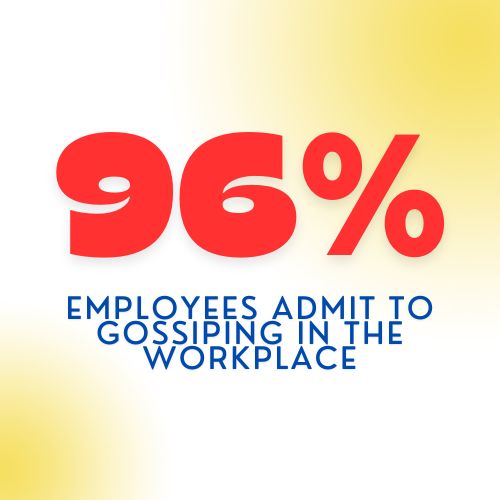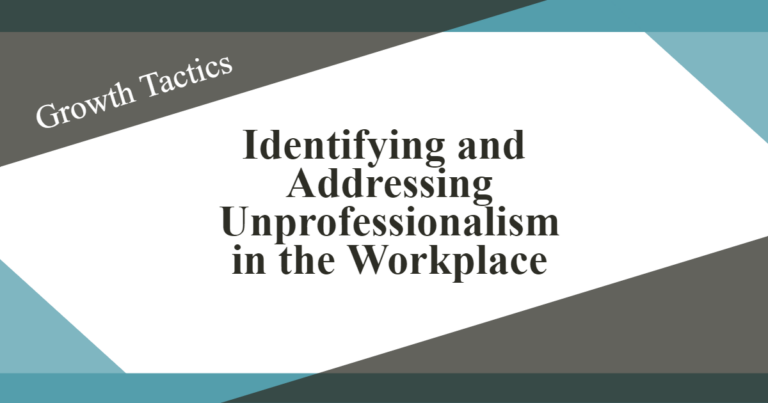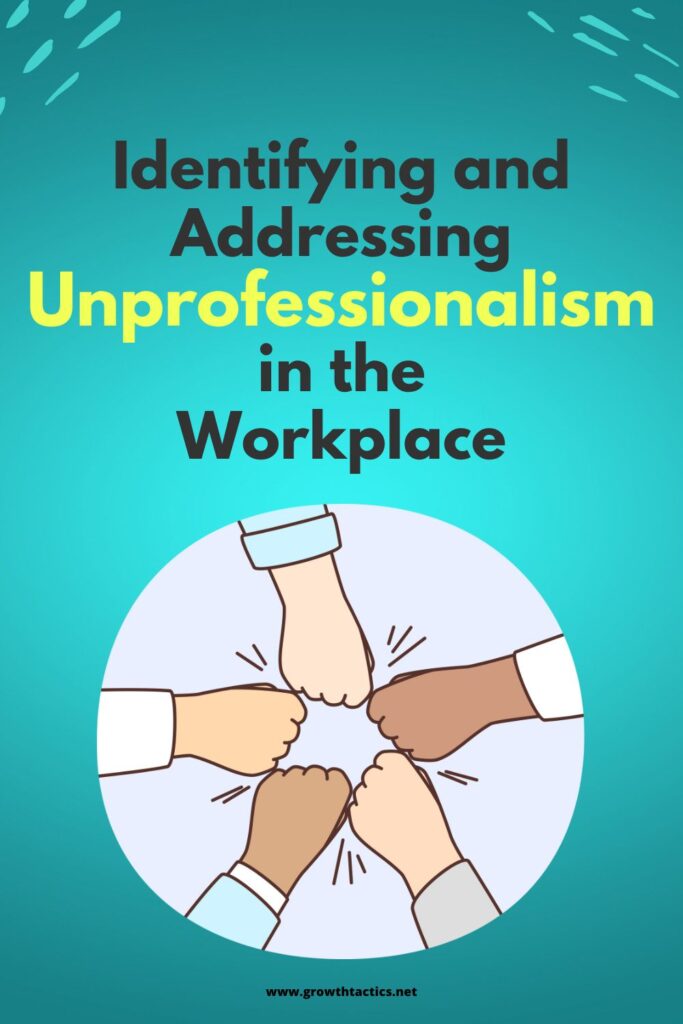Have you ever witnessed a coworker making snide remarks during a meeting, or seen tempers flare over the coffee machine? Unprofessional behavior isn’t just uncomfortable; it’s a toxin that can suffocate a healthy workplace. From whispered gossip to outright bullying, such misconduct can shatter the very foundations of teamwork and respect.
In this article, we shine a spotlight on the dark corners of unprofessionalism in the workplace, offering clear signs to spot it and effective strategies to address it. Stay with us as we explore how maintaining professionalism isn’t just company policy; it’s a building block for success and satisfaction in every career.
Jump To Section
Recognizing Unprofessional Behavior
Spotting unprofessional behavior starts with knowing what to look for. It’s not always as clear-cut as someone showing up late or disrespecting a colleague in a meeting. Let’s dive into the signs, both loud and quiet, that signal something’s off.
The Obvious Offenders
First, there are the clear cases. If you see someone being rude, that’s a red flag. Rudeness can take many forms. It might be someone talking over others in a meeting. It could be someone responding to a simple request with an eye roll. These actions disrupt the flow of respect.
Then, there’s tardiness. Showing up late occasionally happens to everyone. But when it’s a habit, it shows a lack of respect for everyone’s time. It says, “My time is more important.” That’s unprofessional.
Bullying is another serious issue. It’s not just a schoolyard problem. In the workplace, it can look like someone always pushing their ideas, ignoring others, or even shouting. Bullying kills team spirit.
The Subtle Signs
Now, let’s talk about the less obvious signs. They’re sneakier but just as harmful.
Disrespectful body language is a big one. Picture someone rolling their eyes or checking their phone constantly during a conversation. It sends a message, loud and clear, without saying a word.
A negative attitude can also be a silent killer. You know the type: they shoot down every idea, always expect the worst, and drain the team’s energy. It’s a form of unprofessionalism that’s contagious.
Inappropriate technology use is another sign. It’s not just about personal texts during work hours. It’s about using work channels for inappropriate jokes or comments. This behavior crosses a line.
Lastly, there’s the failure to respect boundaries. This might look like bombarding colleagues with after-hours calls or emails. Work-life balance is crucial, and respecting it is professional.
Why It Matters
You might wonder, “Why does all this matter?” It’s simple. Unprofessional behavior creates a toxic work environment. It affects morale, productivity, and even the company’s reputation.
Spotting unprofessional behavior is the first step toward addressing it. Keep your eyes open, and you’ll be well on your way to fostering a healthier, more professional workplace.

The Impact of Unprofessional Behavior
Imagine walking into a workspace where unprofessional behavior is the norm. That sting you feel? It’s the beginning of a bigger problem. Unprofessional behavior isn’t just a small annoyance. It’s a wave that can crash through the workplace, leaving damage in its wake.
The Domino Effect on Team Dynamics
When team members don’t respect each other or the rules of the workplace, collaboration suffers. A project that should take a week stretches into a month. Deadlines slip. Quality drops. Customers notice. That’s because everyone’s too busy dealing with workplace drama to focus on their actual work.
The Toll on Morale and Talent Retention
Morale doesn’t just dip; it crumbles. A workplace heavy with unprofessionalism is filled with distrust and discomfort. People no longer enjoy coming to work. Calls in sick increase. The most talented employees might start looking elsewhere, where they feel valued and respected. Retaining top talent becomes a challenge.
Implications for Customer Relations and Reputation
Clients and customers pick up on these vibes, too. They can tell when the staff is unhappy or the service has slipped. The company’s reputation takes blows on social media or through word of mouth. Rebuilding a tarnished reputation is much harder than maintaining a good one.
The Financial Repercussions
And let’s not forget the financial side. Unprofessional behavior can lead to costly mistakes, lost business, and expensive turnover. Those costs add up, and they can eat into a company’s bottom line.
Understanding the Larger Impact
It’s not just about the office climate; it’s about the overall success and health of the business. The ripple effect of unprofessional behavior can extend far beyond what we see at first glance. Recognizing the serious impact of such behavior is the first step toward creating positive change.
Strategies for Addressing Unprofessionalism
Speaking Up
Firstly, maintain your composure. Witnessing unprofessional behavior can be jarring, but the way you respond can set the tone for the outcome. Approach the individual privately and express your concerns respectfully. It’s possible they’re unaware of how their actions impact others.
Documenting Incidents
Documentation is your best friend in these situations. Note the date, time, and a detailed account of what happened. Try to avoid opinion and stick to facts. Include any witnesses if applicable. This record becomes invaluable if the behavior continues or escalates, providing a basis for further action.
Learning to De-escalate
Mastering the art of de-escalation is crucial. When a situation heats up, your ability to remain calm can make all the difference. Listen actively to the other person’s point of view, and seek a peaceful resolution. Empathy and understanding can often bridge divides and lower tensions.
Setting Clear Boundaries
It’s essential to establish clear boundaries in interactions. Let the other person know what behavior is acceptable and what isn’t. This clarity helps prevent future incidents and communicates your commitment to professionalism.
Seeking Support
You don’t have to handle everything alone. If the situation is beyond your ability to resolve, don’t hesitate to seek support from supervisors or HR. These resources are there to help maintain a professional workplace environment.
Fostering a Culture of Respect
Ultimately, cultivating a respectful culture starts with individual actions. Lead by example. Show kindness, patience, and professionalism in your daily interactions. Over time, this can inspire others to do the same, contributing to a more positive and professional workplace.
Embracing these strategies can significantly mitigate unprofessionalism in the workplace. Every action towards professionalism builds a stronger, more respectful working environment for everyone involved.
Role of Management and Leadership
Set the Standard
Leaders, you carry a heavy responsibility. The culture of your workplace starts with you as the boss. If you ignore signs of unprofessional behavior, it suggests that such conduct is acceptable. It’s not. You have the power to influence change and set a higher standard for everyone.
Lead by Example
Behavior is contagious. Show respect, always be on time, and exhibit professionalism in everything you do. Your team will take notice and likely follow suit. Remember, as a leader, your actions and attitudes serve as a model for those around you. Strive to be the example of the behavior you want to see.
Enforce Rules Fairly
Consistency is key in leadership. Applying the same rules to everyone, without exception, is critical. When the team sees that even the leaders are subject to the same expectations and consequences, it builds a foundation of fairness and respect. Favoritism can quickly erode the trust and morale of your team, so avoid it at all costs.
Promote Open Communication
Fostering an environment where open and honest communication is encouraged is fundamental. Regularly discuss your expectations with your team, and be clear about what behaviors are—and aren’t—acceptable. Encourage your team members to voice their concerns and suggestions too. This two-way communication helps in creating a workplace where everyone feels valued and heard.
Invest in Your Team’s Development
Developing your team’s professional skills is also a part of your role. Offer training and learning opportunities to help them grow. This not only enhances their skills but also shows that you are invested in their success. A team that feels supported in its professional growth is more engaged and motivated.
Address Issues Promptly
When unprofessional behavior arises, address it immediately. Letting it slide can lead to a culture where such behavior becomes the norm. Tackling issues promptly shows that you are committed to maintaining a professional environment.
Your role as a leader or manager is critical in shaping the workplace culture. By setting high standards, leading by example, enforcing rules fairly, promoting open communication, investing in your team, and addressing issues promptly, you create an environment of professionalism and respect. Remember, the goal is not just to lead but to inspire your team to achieve their best.
When to Take Formal Action
At times, talking won’t fix the issue. If someone’s unprofessional behavior in the workplace goes too far or keeps happening, you need to take stronger steps. That’s when Human Resources (HR) comes in.
Call HR in these situations. They know how to handle it properly. They’ll look into what happened and decide what to do about it. This can include warnings or even letting someone go if necessary.
You’re not just solving a problem; you’re keeping the workplace safe. Everyone deserves to work somewhere positive and respectful. Don’t let bad behavior ruin that.
Conclusion
Unprofessional behavior can poison a workplace. But it doesn’t have to. Recognize the signs, address the issues, and promote a culture of professionalism. Leaders set the example. Everyone else follows suit. Let’s make our workplaces healthy, respectful, and productive.
Together, we can turn the tide against unprofessional behavior and build something better. Let’s get to work.


